39 in plain english federal reserve worksheet answers
1610s, "something stored up," from reserve (v.) or from French réserve, a back-formation from reserver "set aside, withhold," from Latin reservare "keep back, save up; retain, preserve," from re- "back" (see re-) + servare "to keep, save, preserve, protect" (from PIE root *ser- (1) "to protect"). Meaning "self-imposed restraint on freedom of words or actions; habit of keeping back the feelings" is from 1650s. The meaning "district or place set apart for some particular use" is by 1805. The sense of "amount of capital kept on hand to meet probable expenses or demand" is by 1866. That of "amount of natural resources known to exist in a particular region" is by 1912. As an adjective, "kept in reserve," by 1719. The military sense of "body of troops withheld from action to serve as reinforcements, etc." is from 1640s; that of "national emergency defense or auxiliary military force" (reserves) is by 1866. Answer Key. 1. Who created the Federal Reserve System? Congress, by passing the Federal Reserve. Act in 1913. 2. Name the three parts of the Federal Reserve ...1 page
"spin imparted to a ball" (as in billiards), 1860, from French anglé "angled" (see angle (n.)), which is similar to Anglais "English."
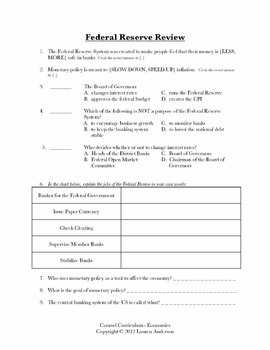
In plain english federal reserve worksheet answers
"level country, expanse of level or nearly level ground," c. 1300 (in reference to Salisbury Plain), from Old French plain "open countryside," from Latin planum "level ground, plain," noun use of neuter of planus (adj.) "flat, even, level" (from PIE root *pele- (2) "flat; to spread"). Latin planum was used for "level ground" but much more common was campus. What is the Fed? Buck, our friendly tour guide, will show you around the Federal Reserve System, introducing you to who we are and what we do in this video. c. 1300, "flat, smooth," from Old French plain "flat, smooth, even" (12c.), from Latin planus "flat, even, level" (from PIE root *pele- (2) "flat; to spread"). Sense of "explicit, clear, evident" is from late 14c.; that of "free from obstruction" is mid-14c.; meaning "simple, sincere, ordinary" is recorded from late 14c., especially of dress, "unembellished, without decoration, unadorned." Of words, speech, etc., "direct and to the point," late 14c. As an adverb from late 14c. In reference to the dress and speech of Quakers, it is recorded from 1824; of Amish and Mennonites, from 1894 (in the Dutch regions of Pennsylvania Plain with the capital is shorthand adjective for "Amish and Old Order Mennonite"). Of appearance, as a euphemism for "ill-favored, ugly" it dates from 1749. Of envelopes from 1913. Plain English is from c. 1500. Plain dealer "one who speaks his opinions candidly; one who is frank, honest, and open" is from 1570s, marked "Now rare" in OED 2nd edition, though it survives since 1842 as the nam
In plain english federal reserve worksheet answers. "to translate into English," late 14c., from English (n.1) in the language sense. Related: Englished; englishing. Start studying In Plain English: Making Sense of the Federal Reserve. Learn vocabulary, terms, and more with flashcards, games, and other study tools. Rating: 5 · 1 review @2013, Federal Reserve Bank of St. Louis: Permission is granted to reprint or photocopy this lesson in its entirety for educational purposes, provided the ... NAME: Period: ______ “In Plain English” video on the Federal Reserve System (Yates/Hearne) Fill in the following answers from the video presentation.
1640s, as a theological term (in reference to "covenants" between God and man), from French fédéral, an adjective formed from Latin foedus (genitive foederis) "covenant, league, treaty, alliance" (from PIE *bhoid-es-, suffixed form of root *bheidh- "to trust, confide, persuade"). Secular meaning "pertaining to a covenant or treaty" (1650s) led to political sense of "formed by agreement among independent states" (1707), from use of the word in federal union "union based on a treaty" (popularized during formation of U.S.A. 1776-1787) and like phrases. Also from this period in U.S. history comes the sense "favoring the central government" (1788) and the especial use of the word (as opposed to confederate) to mean a state in which the federal authority is independent of the component parts within its legitimate sphere of action. Used from 1861 in reference to the Northern forces in the American Civil War. DVD of In Plain English: Making Sense of the Federal Reserve, A Virtual Tour ... viewing the DVD, they should look for answers to these questions and take ...13 pages 1909, from work (n.) + sheet (n.1). In Plain English. In this module, you will learn about the establishment of the Federal Reserve System, its history, its structure and its functions.
The value of the U.S. dollar has declined by more than 95 percent since the Federal Reserve was created nearly 100 years ago. As we approach the 100 year anniversary of the creation of the Fed, it is absolutely imperative that we get the American people to understand that the Fed is at the very heart of our economic problems. Old English, "belonging to the English people;" late 13c., "belonging to England," from English (n.1). The adjective in Old English meant "of or pertaining to the Angles." The adverb Englishly (mid-15c.) is rare. "the people of England; the speech of England," noun use of Old English adjective Englisc (contrasted to Denisc, Frencisce, etc.), "of or pertaining to the Angles," from Engle (plural) "the Angles," the name of one of the Germanic groups that overran the island 5c., supposedly so-called because Angul, the land they inhabited on the Jutland coast, was shaped like a fish hook (see angle (n.)). The use of the word in Middle English was reinforced by Anglo-French Engleis. Cognates: Dutch Engelsch, German Englisch, Danish Engelsk, French Anglais (Old French Engelsche), Spanish Inglés, Italian Inglese. Technically "of the Angles," but Englisc also was used from earliest times without distinction for all the Germanic invaders — Angles, Saxon, Jutes (Bede's gens Anglorum) — and applied to their group of related languages by Alfred the Great. "The name English for the language is thus older than the name England for the country" [OED]. After 1066, it specifically meant the native population of England (as distinguishe mid-14c., "keep back or in store for future use;" late 14c., "keep as one's own," from Old French reserver "set aside, withhold" (12c.) and directly from Latin reservare "keep back, save up; retain, preserve," from re- "back" (see re-) + servare "to keep, save, preserve, protect" (from PIE root *ser- (1) "to protect"). Meaning "to book" is from 1935. Related: Reserved; reserving.
c. 1300, "flat, smooth," from Old French plain "flat, smooth, even" (12c.), from Latin planus "flat, even, level" (from PIE root *pele- (2) "flat; to spread"). Sense of "explicit, clear, evident" is from late 14c.; that of "free from obstruction" is mid-14c.; meaning "simple, sincere, ordinary" is recorded from late 14c., especially of dress, "unembellished, without decoration, unadorned." Of words, speech, etc., "direct and to the point," late 14c. As an adverb from late 14c. In reference to the dress and speech of Quakers, it is recorded from 1824; of Amish and Mennonites, from 1894 (in the Dutch regions of Pennsylvania Plain with the capital is shorthand adjective for "Amish and Old Order Mennonite"). Of appearance, as a euphemism for "ill-favored, ugly" it dates from 1749. Of envelopes from 1913. Plain English is from c. 1500. Plain dealer "one who speaks his opinions candidly; one who is frank, honest, and open" is from 1570s, marked "Now rare" in OED 2nd edition, though it survives since 1842 as the nam
What is the Fed? Buck, our friendly tour guide, will show you around the Federal Reserve System, introducing you to who we are and what we do in this video.
"level country, expanse of level or nearly level ground," c. 1300 (in reference to Salisbury Plain), from Old French plain "open countryside," from Latin planum "level ground, plain," noun use of neuter of planus (adj.) "flat, even, level" (from PIE root *pele- (2) "flat; to spread"). Latin planum was used for "level ground" but much more common was campus.
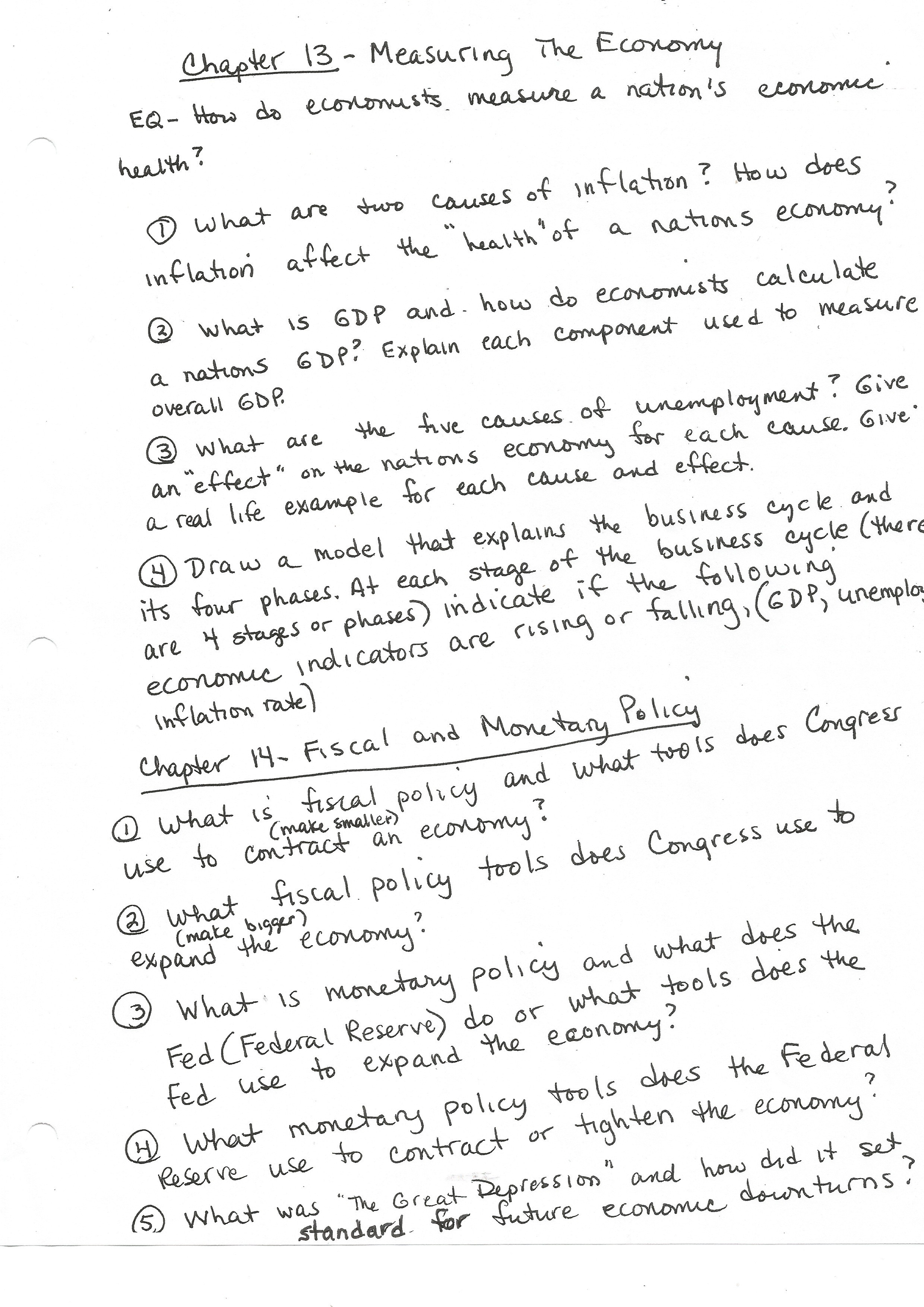








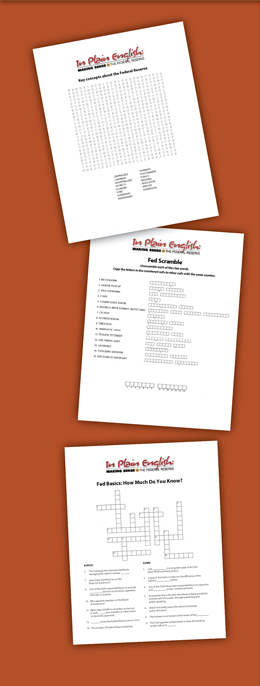
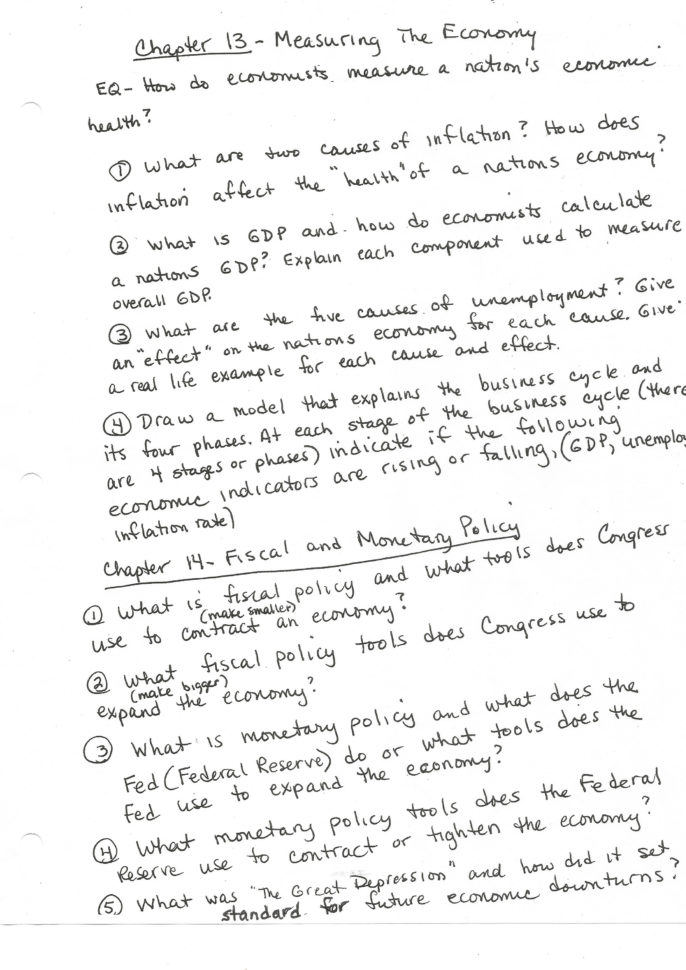
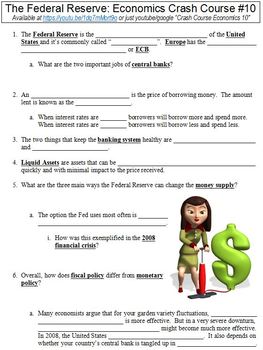





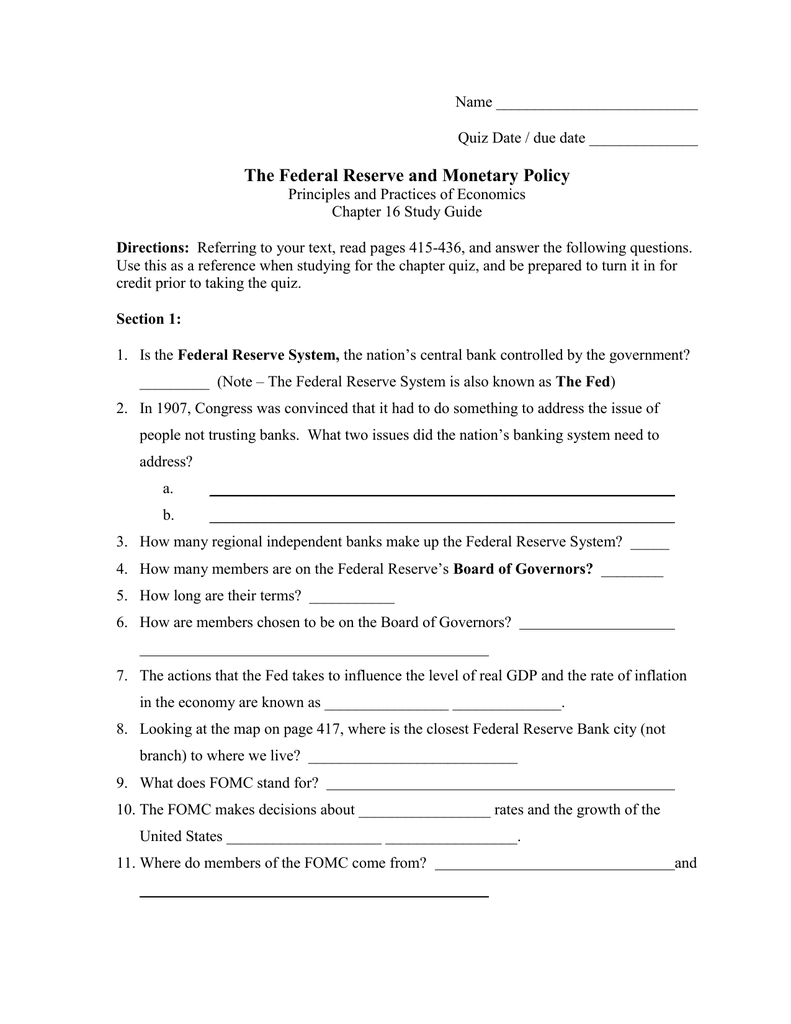


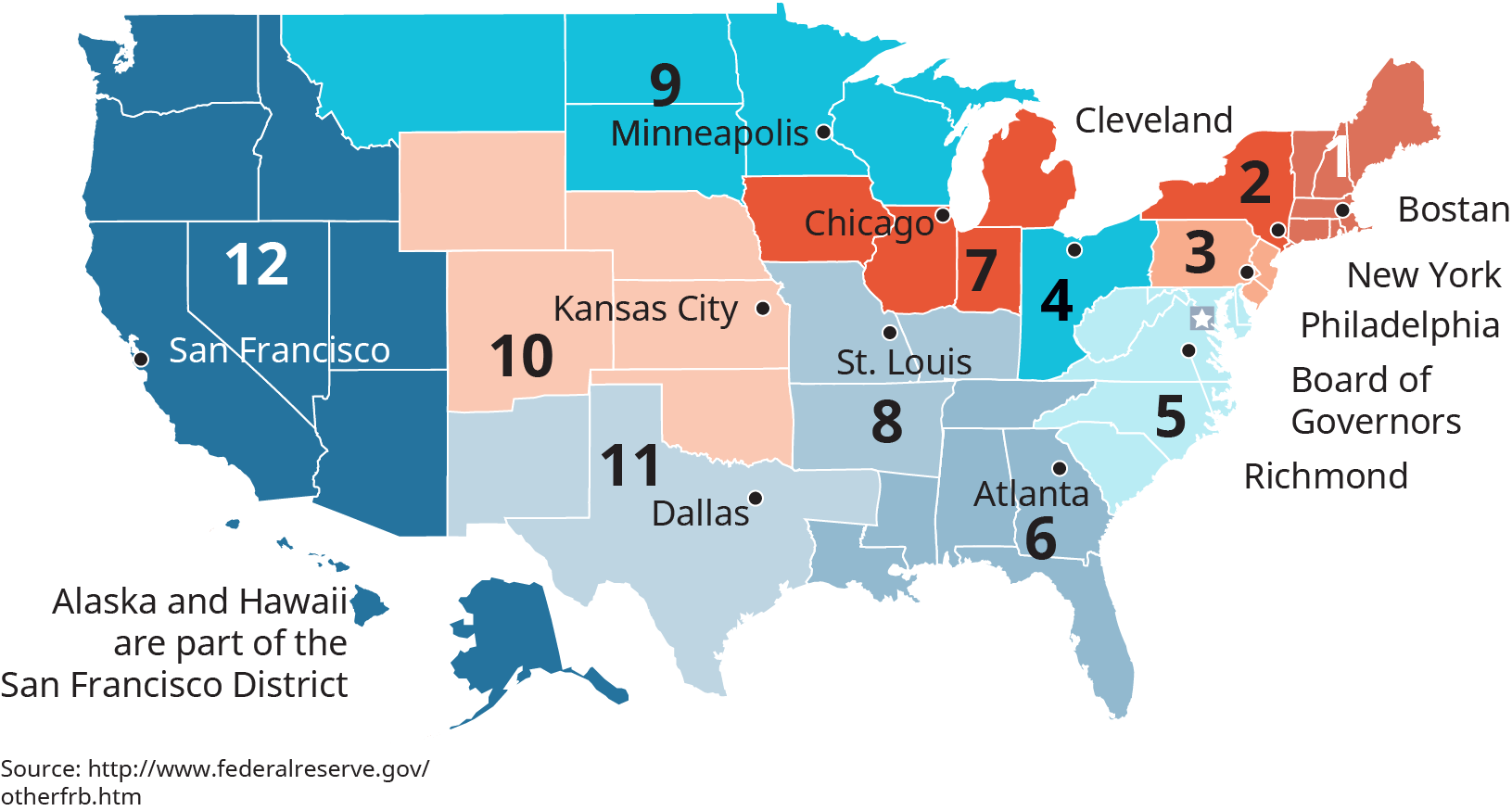
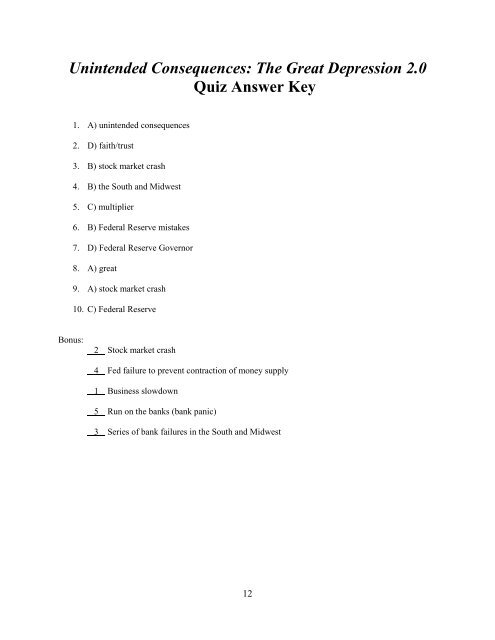
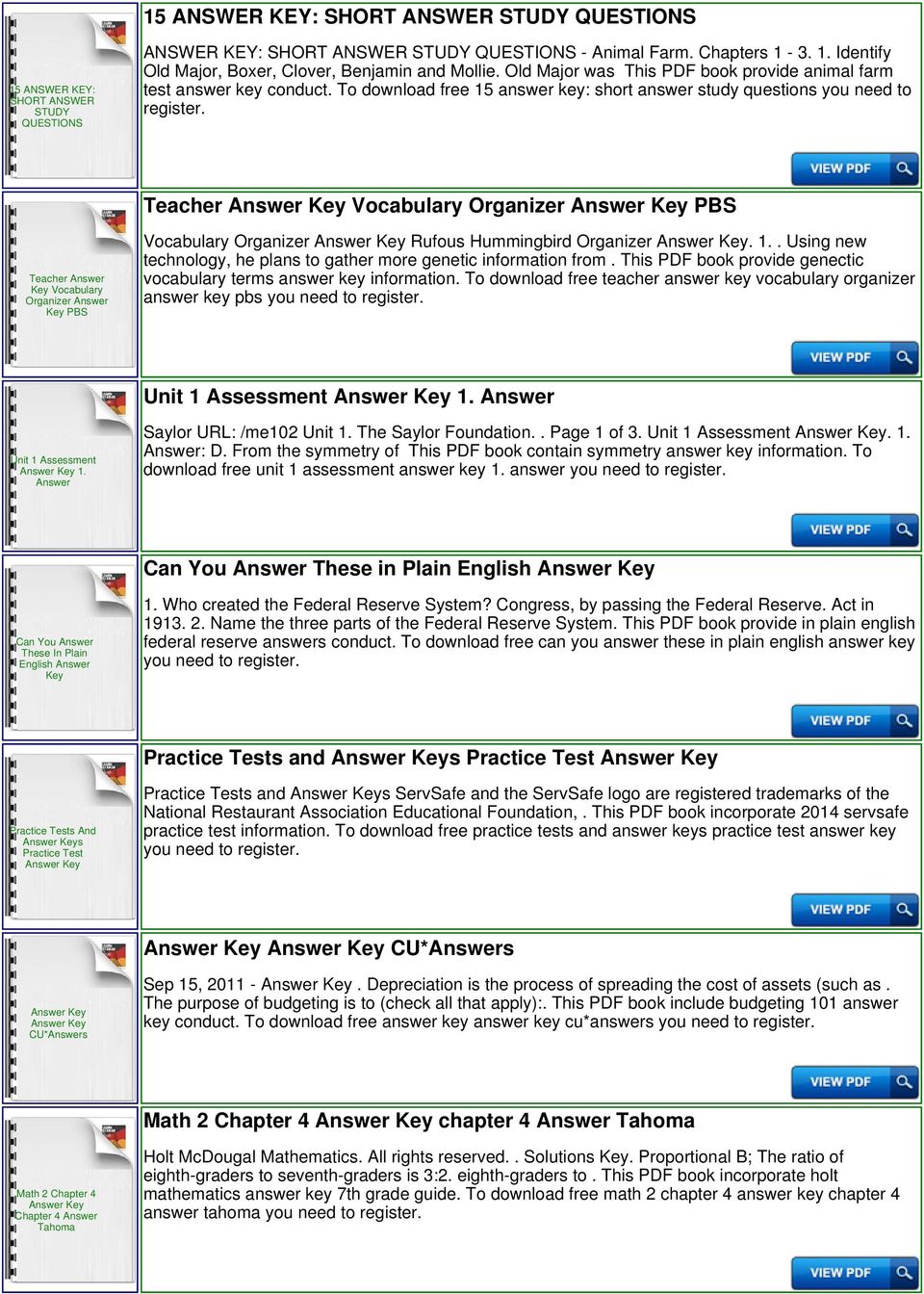











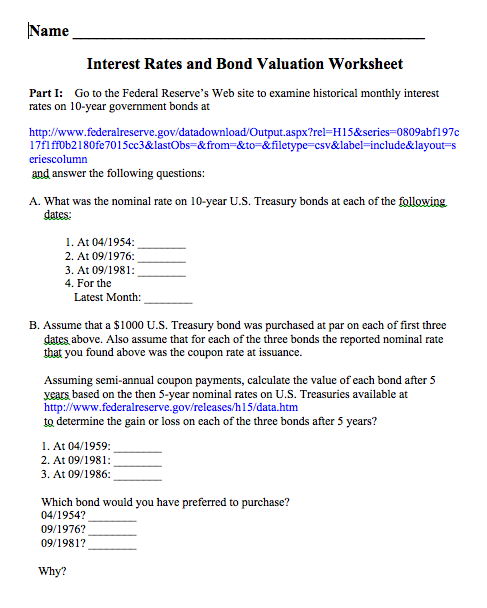
0 Response to "39 in plain english federal reserve worksheet answers"
Post a Comment